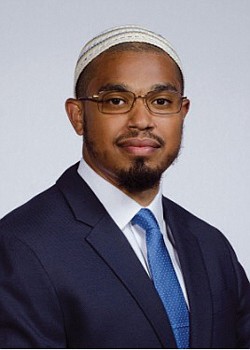The humanities and HBCUs, by Yahusef Medina
3/28/2024, 6 p.m.
Last month, as we commemorated another year of Black history, I found myself reflecting on two prominent themes in the life and legacy of Carter Godwin Woodson, pioneer of Black History Month, who was born in Buckingham County, Va.
As a renowned historian and faculty member of two HBCUs, Mr. Woodson ardently supported both the humanities and HBCUs.
In fact, the humanities and HBCUs are deeply connected and hold special value in the lives of many of our distinguished Black leaders over the past 150 years.
The humanities, as defined by the National Humanities Center, help us understand and interpret the human experience, as individuals and societies.
Accordingly, the humanities have helped many African-Americans contextualize the oppressive environment they lived in and provided a framework for how to express and revolutionize their condition. For Booker T. Washington, it was the combination of his education at Hampton Institute (now University) and theological training at seminary that equipped him with the tools to become the inaugural principal at the Tuskegee Normal School for Colored Teachers. As a result, he became a transformational national leader and activist.
HBCUs enabled African-Americans to pursue higher learning and advance their position in a society that otherwise prohibited them. They created places of refuge and sanctuary, where one could learn, think and teach freely. Virginia Union University, the first of six HBCUs in the Commonwealth, although only five are operational today, was established in 1865 for the expressed purpose of educating newly liberated African-Americans. To date, VUU is widely known for its divinity program, and religious studies, and has many notable alumni, including the first Black governor in Virginia and the United States, L. Douglas Wilder.
Although certain progress has been achieved over the past century, many people find themselves in similar predicaments today. That is, seeking outlets and safe spaces to learn their history, express their culture, find their faith, and improve their position in society.
In the fall of 2021, the Hunt Institute released a Federal and State Policy Scan Brief on HBCUs. Its sample concluded some of the principal reasons for Black students attending HBCUs were to experience less racism and explore their cultural roots. Sadly, racialization in the United States continues to demonstrate that if Black Indigenous and People of Color (BIPOC) do not protect and preserve their history and culture, it will be altered, if not erased. In the poignant words of Arturo Alfonso Schomburg, “The negro digs up his past.”
This persistent threat to Black related studies necessitates a greater responsibility for the BI-POC community to be familiar with our history and stewards of our traditions.
The American Academy of Arts and Sciences recently conducted research on Americans and their engagement with and perception of the humanities, titled “The Survey of the Humanities in American Life.” The study revealed that due to higher rates of religious study, literary and poetry event attendance, and online sharing of humanities content, Black Americans are more engaged with the humanities than the general public.
That fervor directly translates to campus life in HBCUs and places a premium on cultural capital. As a result, the humanities and HBCUs maintain a symbiotic relationship whereby a student does not need to be formally in the classroom to be enriched by the humanities. Notwithstanding, HBCUs mostly maintain a strong Liberal Arts curriculum and have seen significant growth in certain liberal studies and interdisciplinary humanities programming.
Ultimately, HBCUs, despite their underfunding and under-appreciation, overperform and continue evolving to better serve their students. As we reflect on the history and contributions of African-descended people throughout the entire year, let us apply Mr. Woodson’s words, “real education means to inspire people to live more abundantly, to learn to begin with life as they find it and make it better.”
The intersection of the humanities and HBCUs is a place where that education thrives.
The writer is the director of community initiatives and the HBCU Scholars Fellowship at Virginia Humanities.






